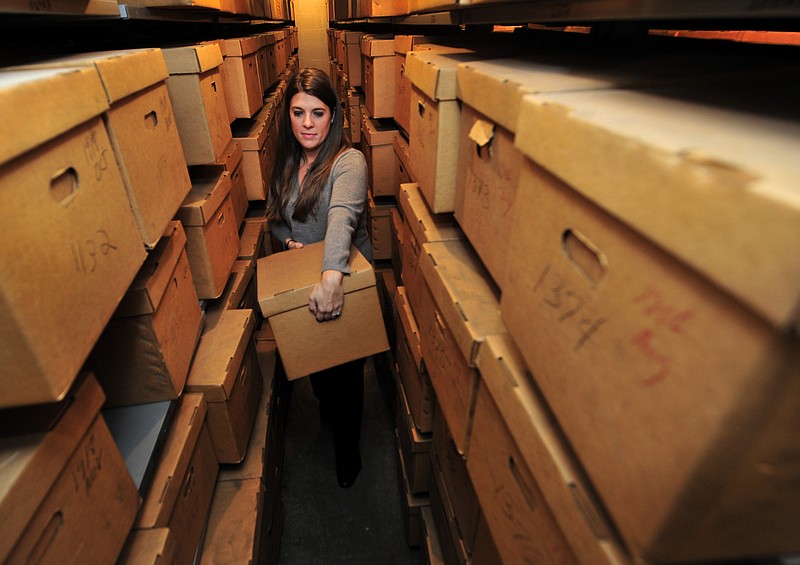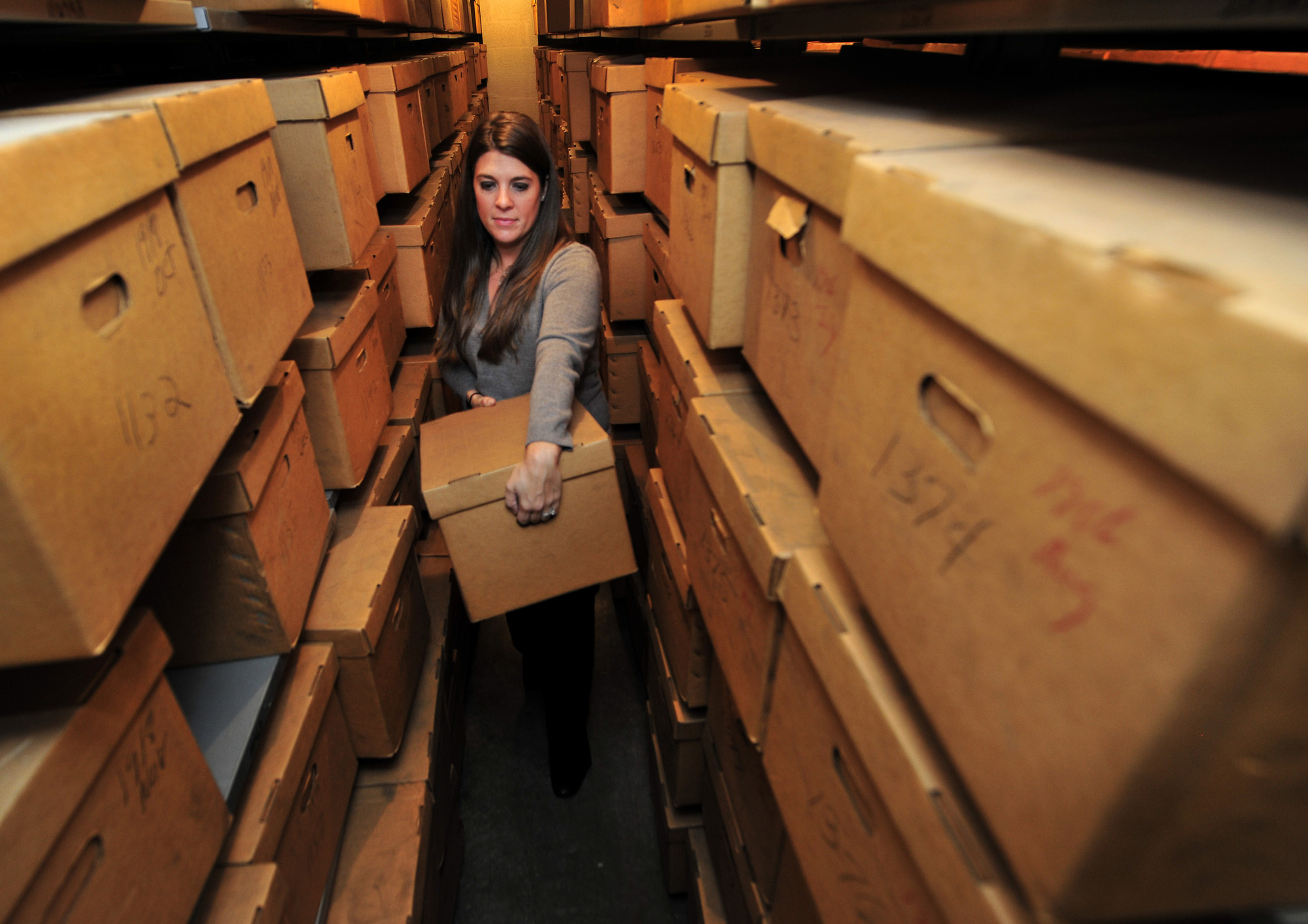NASHVILLE - Wearing a heavy apron and armed with scissors, a brush, a sponge, pliers and a magnifying glass, Todd Wallwork huddles over a table in the basement of the Tennessee State Library and Archives and tends to a seemingly endless flow of Tennessee court records dating back more than two centuries.
Delicate work with fragile, largely handwritten documents isn't what Wallwork had in mind when he accepted a position as a digital materials librarian, but such is the importance of the library and archives' efforts to preserve 10,000 boxes of Supreme Court cases from the state's birth to the 1950s. Wallwork is one of about 20 employees who devote four hours a week to the project.
"I don't know too many people in the building who don't do it," he said. "It's kind of nice to come down here and deal with paper."
The boxes take up an entire half of the eighth floor of the library and archives building on Seventh Avenue North in downtown Nashville and constitute what Assistant State Archivist Wayne Moore called "the largest body of official state records we have."
Moore said he doesn't know of any other state that has "grappled with the entire body of its Supreme Court" cases as Tennessee is now doing.
The case files largely were neglected in the attic of the Capitol building across the street for years, where they accumulated coal dust during the latter half of the 19th century because most Nashville buildings were heated by coal. The records are in dire need of inventorying and preservation.
"Court cases are really rich. I've always felt like they were the richest gold mine of information about Tennesseans," Moore said. "This is a project that's going to take years to finish, but at the end of it, Tennesseans will have access to the legal foundation of the state."
The preservation project was spearheaded by the Tennessee Supreme Court Historical Society in 2006 and has been kept afloat with about $100,000 in grants over the years from various sources, including the federal government and Ancestry.com, a genealogy website. Graduate assistants from Middle Tennessee State University's archival studies program have been hired when money was available.
While only 20 percent complete, the project already has turned up some gems interspersed among mundane estate settlements, routine deaths and thousands of cases involving livestock killed by trains.
The Scopes Monkey Trial case file, lawsuits challenging Jim Crow legislation and cases involving Andrew Jackson both as a judge and as a litigant are among the interesting and historically significant materials unearthed.
Moore is particularly impressed with an 1850 case, Ford v. Ford, that involved a slaveholder who wrote in his will that he wanted his slaves freed after his death. His family sought to prevent the move, arguing that slaves didn't have legal rights, but Chief Justice Nathan Green wrote that slaves were "made in image of our creator" and therefore had basic legal rights.
The U.S. Supreme Court invalidated Green's ruling seven years later with its Dred Scott decision, which held slaves were not protected by the Constitution. "That was an exceptional and unique decision for a Southern court," Moore said of Green's ruling. "He was going against the tide."
The case files are being indexed, and basic information about the cases is being recorded into a database that the public can search online.
"To me, the importance of the project is it is preserving these records and making them available to anyone - not just lawyers, but historians, genealogists" and others, said Mike Catalano, clerk of Tennessee's appellate courts. "If a sociologist wanted to know about divorce in the 1840s in Tennessee, for example, this would be a great resource."
Individual cases are not being read and summarized due to the time it would take, but employees are on the lookout for anything historically significant as they clean and index the files.
Before that painstaking work however, the documents have to go through another time-consuming process so they simply are safe to handle.
"A lot of it was wrapped with, literally, government red tape," conservator Stewart Southard said as he held up one of the red ribbons that were tied around court documents rolled up like scrolls. "Unfortunately, when they're rolled that way, they want to stay that way."
To avoid breaking the brittle documents, they have to be humidified before they are unrolled. In Southard's lab, the pages are suspended for hours in rubber tubs above a shallow pool of water. Afterward, they are unrolled and placed into one of two antique flattening presses for weeks.
"It's a combination of history and science," Southard said.
Employees at the library and archives have been surprised to find that the boxes contain not only paper, but also some interesting physical exhibits.
"This lady had some surgery and the doctors left the sponge inside. It was a malpractice suit," project manager Kimberly Wires said of a 1933 case out of Knoxville as she held up a plastic bag containing an impossibly old sponge. "That's the actual sponge that was left inside her body."
Other exhibits include an empty bottle of "liquified carbolic acid poison" from a 1930 Hamilton County murder case, a bloodstained pocket-knife from a 1946 Hamblen County murder case, and a hand-drawn map of Chattanooga's red-light district at the turn of the century that was included as part of a case involving saloon and brothel owners.
"They really give you a rich history of the tapestry of life," Moore said. "There are things that express the state of races and classes in Tennessee in the past. We're bringing all of that into public access with this project, whereas before these materials weren't very accessible."

